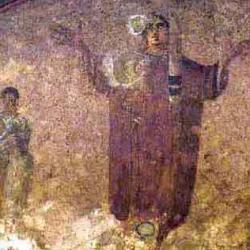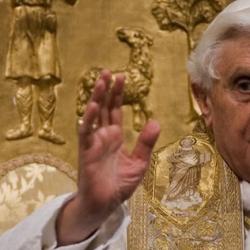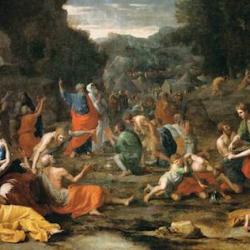John Calvin isn’t the first theologian who comes to mind when thinking about either liturgy or art, much less the combination of the two. W. David O. Taylor thinks that’s unfortunate, and his recent Theater of God’s Glory is an effort to rehabilitate Calvin as a resource for liturgical theology. By attending to Calvin’s Trinitarian theology of material creation, Taylor hopes to show that Calvin has something to contribute to contemporary discussions. At points, Taylor knows that he has to pit Calvin against Calvin, using what is best in Calvin to respond to Calvin’s tendency toward suspicion of matter.
Being a long-time admirer of Calvin, I’m sympathetic with the general project, but I suspect that “material creation” is too broad a theme. Calvin clearly believed that Christ can feed Himself to us through the material elements of bread and wine by the power of the Spirit. For Calvin, matter can mediate the invisible Christ by the Spirit.
The question for Calvin is one of authorization: Which material elements has God promised to use to communicate Himself to us? I’ve long thought that Calvin’s treatise on relics is more central to his sacramental theology than has been credited, and the crux of that treatise isn’t a theology of matter but the question of where God has promised to be found.
This point also raises questions about the category of “liturgical arts.” I found Taylor’s use of the phrase rather vague, and I suspect that for Calvin the issue isn’t only (perhaps not mainly) whether or not things are physical objects but whether or not God authorizes them for our use in worship.
At various points in the book, Taylor highlights the question of the use of musical instruments, contrasting Bucer and Calvin:
Whereas Bucer’s typological reading of Israel’s worship made room for instruments in Christian worship, Calvin’s reading excluded them altogether. Where Bucer, appealing to the principle of simplicity, saw how they might provoke the believer to a “more fulsome praise of God,” Calvin, likewise appealing to the need for simplicity, saw them as real distractions. His commendation of “restrained” singing appears to be at odds, we might add, to the kind of singing that the Psalter itself commends—with its exhortations to shout, burst, revel, clap, and cry unto the Lord. And the fact that angels in heaven repeatedly blow trumpets fails to factor in Calvin’s understanding of the eschatological dimension of worship. This view is in contrast, on the one hand, to Bucer, who believed that instrumental praise anticipated “the blessed festivities of the life to come,” and, on the other, to Luther, who believed that music of heaven directly influenced the music of the church (31–2).
On this as on many other things, count me with Bucer.














